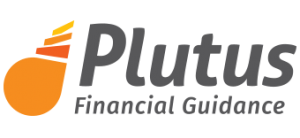Property costs: the miscellaneous costs of property ownership
Property or real estate is an important part of your financial health and property costs can be quite high.
Careful considerations ought to be made as to what strategic role real estate plays in your overall financial health. Especially relating to managing property costs as a property investor, retiree, mortgagor or via self-managed super fund.
Whilst most people strive for a place to call home, I think “home” is what you make it to be. Think about what’s really important to you.
In order to achieve the right balance, you need to compromise or make some trade-offs. You don’t have to start with an ultimate Playboy mansion, but you can surely work toward it over time if that is what floats your boat.
Warren E Buffet is an exceptional long-term investor and incredible philanthropist (pledging 99% of his wealth to philanthropy) with an estimate net worth of about $80 billion. Yet, he lives in the same house that he purchased in the 1950s.
Besides the property cost, there are other costs involved in owning a property.
Assuming you buy an $800k apartment in Sydney, with a 20% deposit of $160k and a loan $640k. Additional costs include:
- $32,000 stamp duty on purchase (state government tax: per table below taken from Revenue NSW Government)
- $3,000 stamp duty on loan amount
- $300 registration of title and mortgage
- $600 loan establishment fee
- $1,500 legal and conveyancing fee

This comes to a total of about $37,500 as a start (just shy of 5% of the $800k purchase). If you have less than 20% deposit, most lenders will require you to take out Lender’s Mortgage Insurance (LMI). The purpose of the LMI is to protect the lender. In our example, if you put down a slightly lower deposit the LMI would be around $5,500. You can find more details on LMI from Canestar:

A buyer’s advocate is someone that searches and negotiates the purchase of a property on your behalf. If you use one, the cost is around $10k to $15k or a percentage of the purchase price.
Besides cost, also consider your time spent on searching for the right property.
Once you own a property, it is not all done and dusted. You need to put money in for maintenance and capital improvements. If you rent it out, according to fair trading NSW, most agents charge a letting fee (usually 1 week’s rent = 1/52= 2%), a management fee based on a percentage of the gross weekly rental (between 5–12%) plus other fees set out in the agreement. A good quality tenant (someone that pays the rent on time, stays long-term, makes minimal complaints and looks after your place) is of great value. Don’t forget council rates, strata levies and land tax (1.6% of the land value between the threshold and the premium rate threshold, and 2% thereafter) which you need to pay regardless of whether you are renting it out or living in the property yourself.
Lastly, the lender will want consistent principal and or interest repayments from you. In our example:
- We use a 30 years loan at 4.5%
- Principal and interest repayment comes to $3,250 per month
Over the 30 years if interest rates stayed unchanged, the total interest paid to the lender is about $530k.
Then there are costs of selling your property at time of exit, for more details see openagent.com.au:
- The average commission real estate agents charge varies between states and between metro vs. regional areas ranging from 1.6% to 4%
- Marketing costs usually come on top of this and can also vary a lot, from $500 to thousands
- legal and conveyancing fee
- Mortgage discharge fee
- Pre-sale renovations
- Auction costs can be “free” or up to $1,000 depending on the agent. Marketing is the principle “hidden” cost of selling at auction. If you’re trying to sell a $700,000 house, your marketing costs can be between $6,000 and $9,000
- Rates and taxes after settlement
